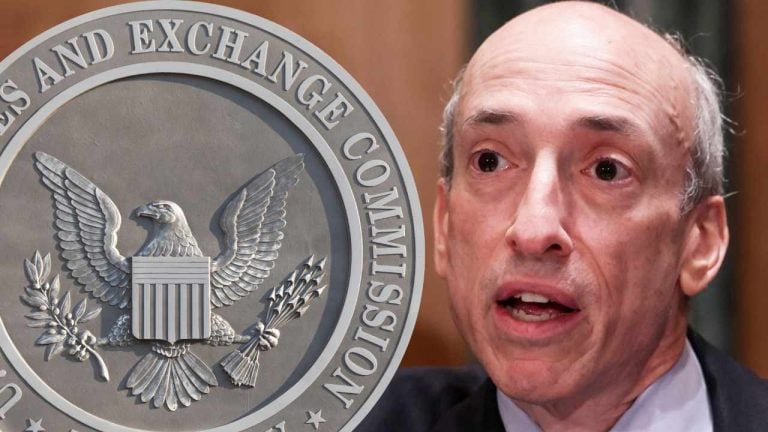
The chairman of the U.S. Securities and Exchange Commission (SEC), Gary Gensler, revealed that he has asked staff at the SEC to fine-tune compliance for crypto tokens and intermediaries. He emphasized that the vast majority of crypto tokens are securities.
SEC Chairman Gary Gensler on Crypto Regulation
Gary Gensler, the chairman of the U.S. Securities and Exchange Commission (SEC), talked about crypto regulation and compliance at the Practising Law Institute’s SEC Speaks conference Thursday.
Noting that the core principles of the SEC’s statutes apply to all securities markets, including securities and intermediaries in the crypto market, he stated:
Of the nearly 10,000 tokens in the crypto market, I believe the vast majority are securities. Offers and sales of these thousands of crypto security tokens are covered under the securities laws.
Gensler admitted that some crypto tokens may not meet the definition of a security. “These likely represent only a small number of tokens, even though they may represent a significant portion of the crypto market’s aggregate value,” he opined.
For example, he previously indicated that bitcoin, the largest cryptocurrency by market capitalization, is a commodity, and falls under the purview of the Commodity Futures Trading Commission (CFTC).
The SEC chairman described bitcoin during his speech Thursday:
Bitcoin, the first crypto token, is referred to by some as ‘digital gold’: trading like a precious metal, a speculative, scarce — yet digital — store of value.
Gensler pointed out that some people in the crypto industry have called for greater “guidance” with respect to crypto assets. He stressed that for the past five years, the Commission “has spoken with a pretty clear voice here: through the DAO Report, the Munchee Order, and dozens of Enforcement actions, all voted on by the Commission.”
Emphasizing the need for investor protection, the SEC boss said:
I’ve asked the SEC staff to work directly with entrepreneurs to get their tokens registered and regulated, where appropriate, as securities.
He noted that “A handful of crypto security tokens have registered under the existing regime.” Nonetheless, he acknowledged that given the nature of crypto investments, “it may be appropriate to be flexible in applying existing disclosure requirements.”
As for crypto intermediaries, Gensler detailed: “I’ve asked staff to work with intermediaries to ensure they register each of their functions — exchange, broker-dealer, custodial functions, and the like.”
He concluded: “I look forward to working with crypto projects and intermediaries looking to come into compliance with the laws. I also look forward to working with Congress on various legislative initiatives while maintaining the robust authorities we currently have.”
Gensler revealed:
I’ve asked staff to consider using our regulatory toolkit to possibly fine-tune compliance for crypto security tokens and intermediaries.
On Friday, the SEC unveiled its plan to set up a dedicated office to review filings related to crypto assets.
What do you think about the comments by SEC Chairman Gary Gensler? Let us know in the comments section below.
Image Credits: Shutterstock, Pixabay, Wiki Commons
Disclaimer: This article is for informational purposes only. It is not a direct offer or solicitation of an offer to buy or sell, or a recommendation or endorsement of any products, services, or companies. Bitcoin.com does not provide investment, tax, legal, or accounting advice. Neither the company nor the author is responsible, directly or indirectly, for any damage or loss caused or alleged to be caused by or in connection with the use of or reliance on any content, goods or services mentioned in this article.
Read disclaimer
